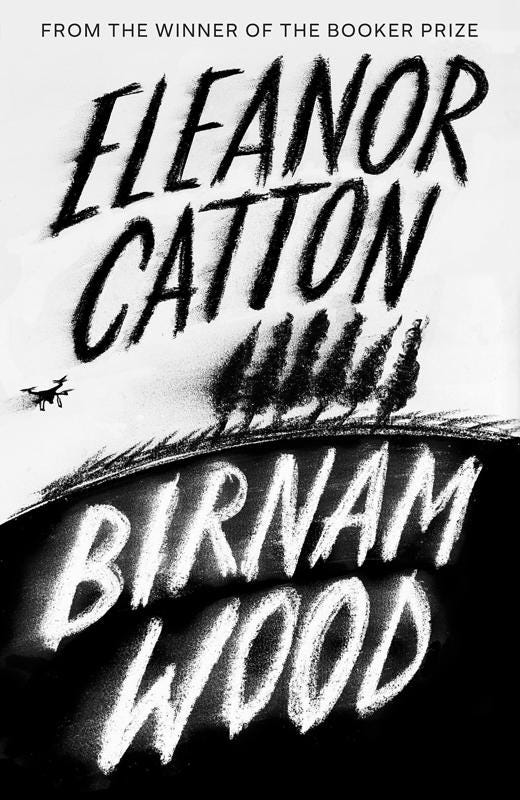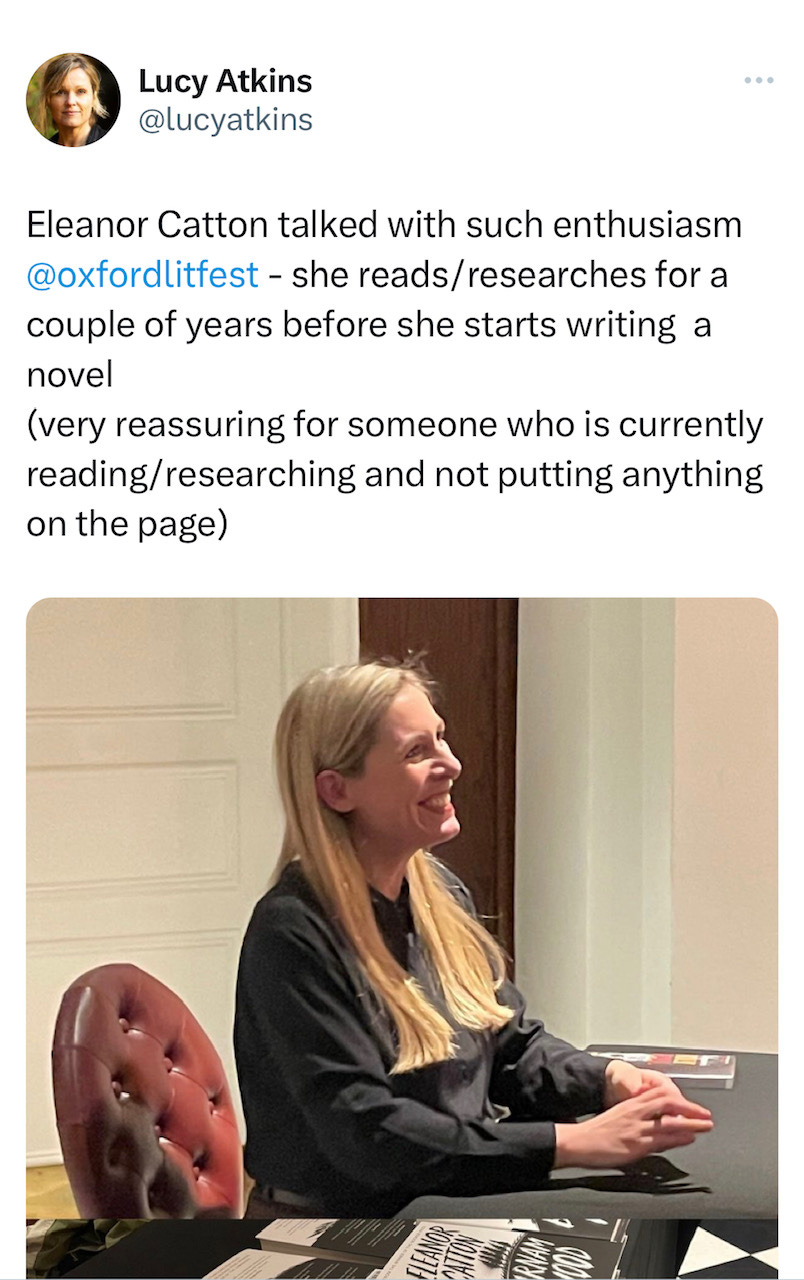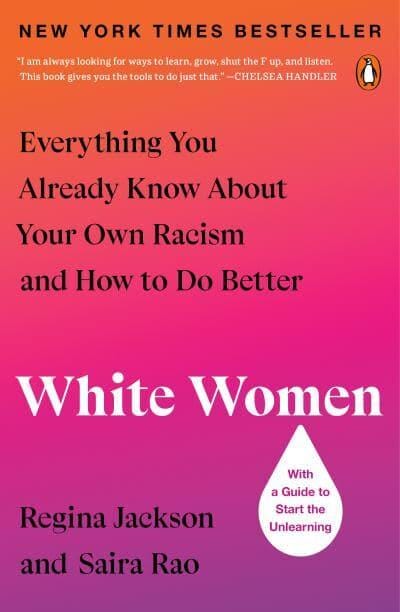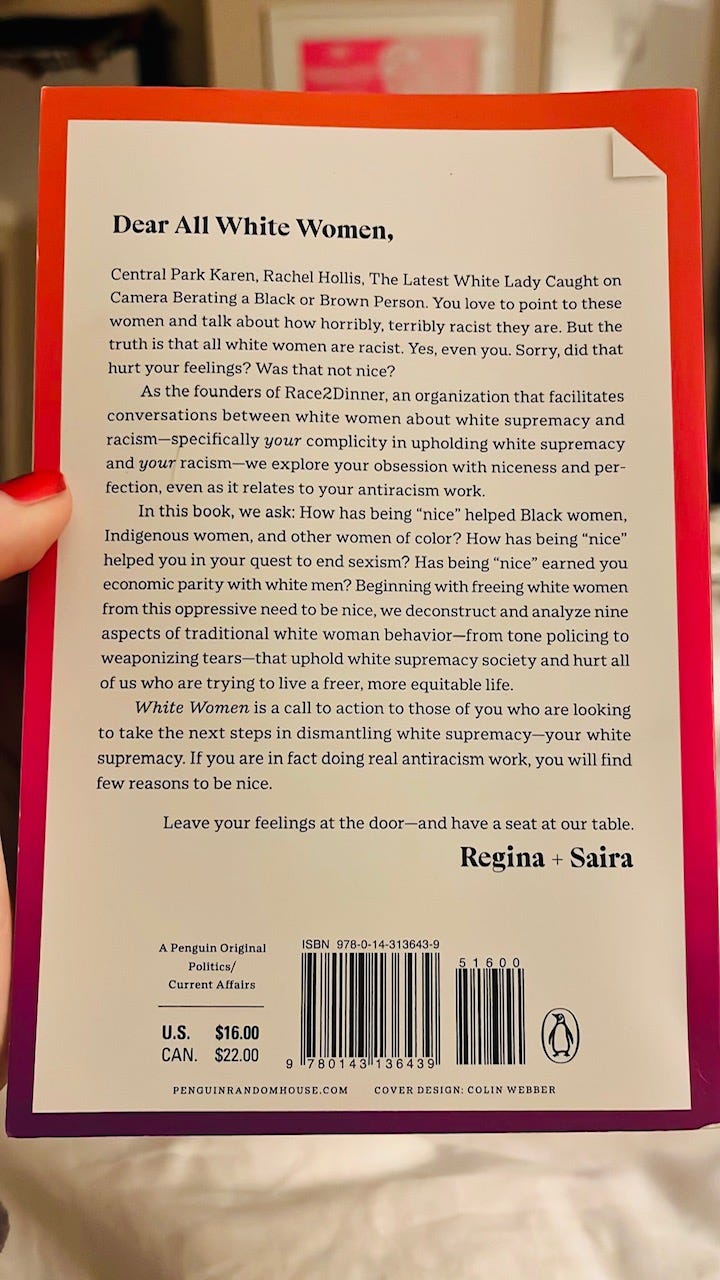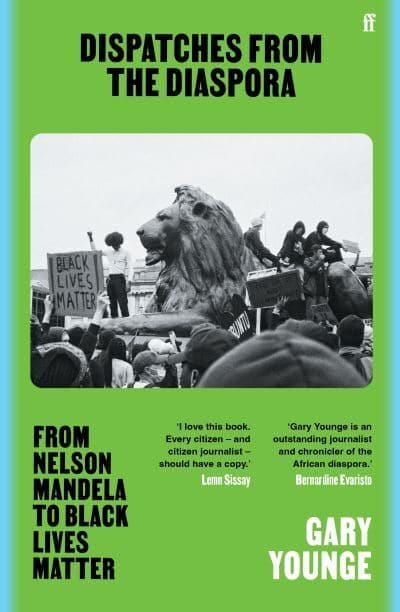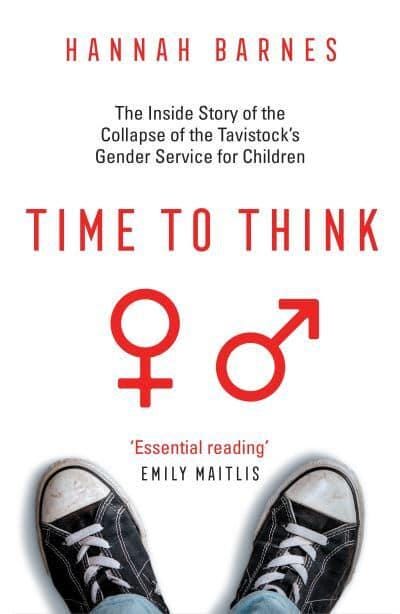Earlier this week on Twitter, the writer Lucy Atkins tweeted about going to see Eleanor Catton speak at the Oxford Literary Festival about her new book BIRNAM WOOD.
Catton had talked with enthusiasm about how she researches for a couple of years before she starts writing, and Atkins found this comforting because as she said she is currently reading/researching and not putting anything to the page.
This is an vital stage of writing, it can also be known (or viewed) as procrastination, and it took me years to come to terms with my own writing process, which is this:
Get given a book deadline, usually around four months. Spend two months fannying around and not really doing anything except reading around my subject. Spend the next couple of weeks chastising myself for not plodding on and getting the book written. Insert here a week of sheer panic involving thoughts like “I can’t do this/I’ll have to give my advance back/This is where I finally get found out.” And then the final few weeks is write the book in an absolute frenzy where I eat, sleep and close myself off to the entire world.
I am sure this process sounds stressful to many people, perhaps those plodders, who set themselves a word count each day of a thousand words or so – in my frenzy I can write six or seven thousand words a day.
I wish I were a plodder, but I am not. I wish, when I was at school, I had been the kind of pupil who had done their homework to deadline instead of using the night before my homework was due in to think of a really creative excuse why I hadn’t done it. But I was not.
I do, however, always file to deadline now. But, the point is, I have had to accept my creative practice as how I write books, and a couple of them have been Sunday Times Bestsellers, so I can’t be doing that bad. It works for me, it keeps the air in the balloon, the energy in the words, and so the stage I am currently at is the reading/researching stage of a new book I am co-authoring about racism and misogyny in the Metropolitan Police. (Anyone who is aware of my work will know I like ‘issues’ books).
And, I’ve got to be honest, it is a very enjoyable stage, it involves a lot of me on my sofa, on top of, or under my heated throw, reading the most interesting books. In fact, I wrap myself in the subject much like I do the heated throw. So I thought I’d share with you a couple of the books I’ve been reading in the last week which I have found a) life-changing, and b) fascinating.
First up is WHITE WOMEN. Now, this is a book that has been published in America and I don’t think it’s had a UK publication, though you can of course buy it from The Book Room.
As you know, I spend my time recommending books to you, but the flip side of being a bookseller is that customers who custom order their own picks from me, end up inspiring me too. One of my customers ordered four copies of WHITE WOMEN for herself and her friends as she follows the social media accounts of the authors, Regina Jackson and Saira Rao, Race2Dinner.
Race2Dinner is an event that was started in the USA by the authors where they attend the homes of white women who invite other white women for dinner, and where the two authors hold them accountable for their innate racism.
Ouch, sounds painful, right? And the accounts of these dinners in the book are painful. But you have to ask, for who? For the white women who squirm and protest at the uncomfortable experience of recognising their own innate racism and white privilege, or the black and brown women who are holding them accountable because they have lived at the raw end of these things for… well, their entire lives.
The book is powerful, it is uncomfortable, but I am not exaggerating when I say it is life-changing. Did I consider myself racist before I started reading it? Yes. Sorry, but I was aware, however much I didn’t like it, that I have been brought up in a society that has drip-fed me with the fact that white equals normal and black/brown is different. We are all racist. We are. It is a very hard pill to swallow. But the good news is that we can do something about it and it starts by acknowledging it and then pledging to work on it and then doing that for the rest of your life, and this is what this brilliant book helps you to do. Failing to acknowledge it because you don’t want to see yourself like that is racism in itself. Saying something like ‘I don’t see colour’ is racism, it’s a failure to acknowledge that a large part of the world’s population has suffered, and continues to suffer, as a result of systemic, innate and institutional racism.
This book isn’t an easy read, but it is unapologetic about that, and why should it apologise? These women are straight-talking, feisty and I learnt not only about racism but about human nature among my white friends. What I can promise you though is that you will emerge from this book with a better understanding of your privilege.
You can buy WHITE WOMEN here.
I also must show you the back as it gives a great insight into what’s inside/instore.
The second book I’ve been reading is the journalist Gary Younge’s new collection of essays, DISPATCHES FROM THE DIASPORA. Well, I say new but actually these essays represent some of the reporting Younge has done over the last two decades, finding himself on the frontline of world events like the inauguration of Barack Obama, Nelson Mandela’s long walk to presidency and also, his memorial, and the Black Lives Matter movement. He wrote with hope in 2001 that the Macpherson Report would mark a sea change in how institutions, and the public at large, would deal with systemic racism, and it is depressing to realise with last month’s publication of the Casey Review that little has changed in the last two decades.
Time after time countries, leaders, schools, institutions, the public, have missed opportunities to create a more equal and compassionate society and instead have become more entrenched in holding onto their privilege, their white privilege I should add.
If you are reading this and you are white, you don’t need to feel that these essays, or the book mentioned above is an attack on you. As Regina Jackson and Saira Rao say in their book, you can’t help which society you were born into, but you can help once you recognise that.
Reading this brilliant collection of essays is one way to understand some of the injustices that black and brown people have been fighting to see acknowledged in the last two decades – and beyond of course. We owe it to them not to turn away, it is our best chance of moving towards a better future, however uncomfortable it feels.
You can buy DISPATCHES FROM THE DIASPORA here.
And so yes, as we move closer to my deadline I may be sharing with you some other books on this topic as I go deeper into it myself. Books are powerful little things, capable of changing our world view, that’s why I love writing them, that’s why I love selling them.
Ooh and before I go, one last book that I have just finished that has accompanied me on my dog walks (I do like an audiobook for dogwalks) though the publisher also gifted me with a physical copy. TIME TO THINK by Hannah Barnes is a brilliant, calm, and unbiased account of what has been going on at the Tavistock Trust’s GIDS clinic treating children who present with Gender Dysphoria.
I cannot recommend it highly enough. It is in places as heartbreaking as it is horrifying, and in the author’s note in the final pages, Barnes reflects with the help of clinicians who worked there on why so much has been allowed to go unexamined which has resulted in potential harm to young people and, sadly, irreversible damage.
It seems that protecting the institution was deemed more important than protecting the individual, that’s why whistleblowers and people employed to safeguard were silenced. It is why those who had their concerns about the service being offered at the trust left, and why it was those with the most entrenched views that stayed committing the trust deeper and deeper into its affirmative approach and this ideology.
It was impossible not to draw a line in those last few pages between GIDS and the Met Police, which has once again chosen to protect the institution rather than the individual with Commissioner Mark Rowley refusing to acknowledge that his own organisation is institutionally racist, misogynist, homophobic and ableist. It is, I guess, a white man’s privilege to disregard the accounts of all the people who spoke to Louise Casey for the review, but it gives us little faith that the Met can reform.
Anyway, you shall read all this in the book that I must start writing. Just a little more reading first…
Don’t forget you get ten per cent of all books in my book shop by buying a gift subscription to The Book Room
• Thank you to all who have been ordering from my online bookshop in the last week. Remember you can still support THE BOOK ROOM while I am waiting to open my physical store again by shopping online, in fact now I would appreciate the support more than ever. I can order ANY BOOK for you and you will receive it within 48 hours. It has never been a more important time to support both writers and independents bookshops, and by buying from me, you are doing both and contributing to a vital ecosystem.


